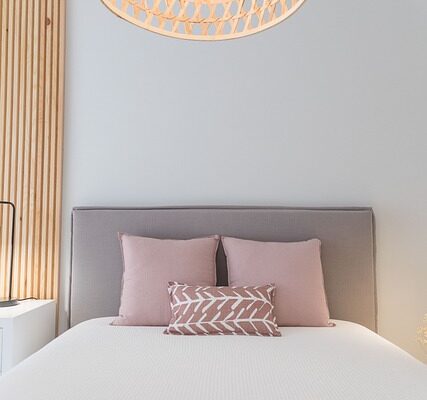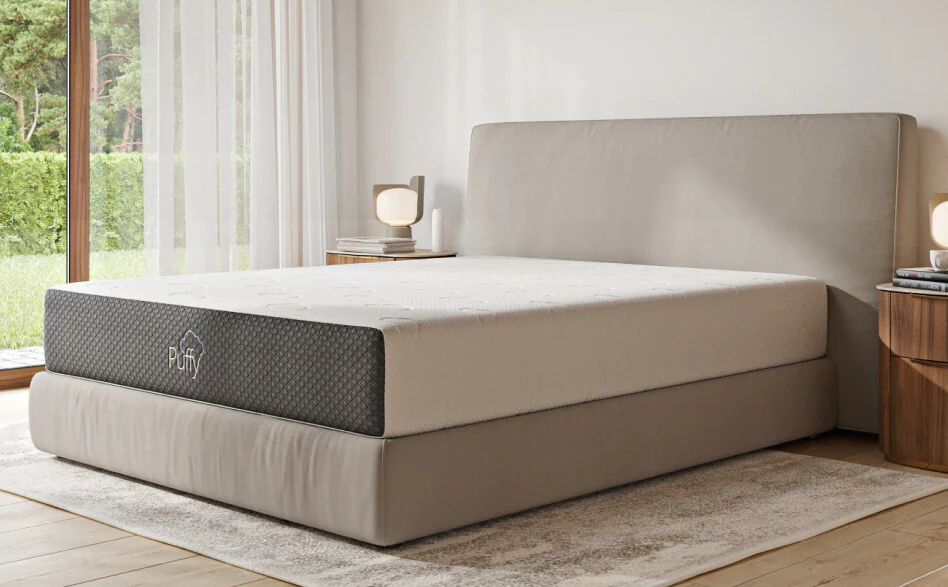Who doesn’t have sleepless nights here and there. We have some suggestions on how to get you to sleep better for those sleepless nights.
It is a common misconception that as you age, you require less Sleep. That is simply not the case. Every adult needs between 7-9 hours of Sleep per night.
Getting a good night’s Sleep becomes more challenging as we age. That doesn’t negate the requirement for seven to nine hours. One of the problems of healthy aging is ensuring that we are getting adequate rest for optimal health.
Sleep Patterns in the Elderly
Older people have difficulty sleeping and staying asleep for a variety of reasons. As we get older, we may see the following:
- It’s taking me longer to fall asleep.
- Sleep is shallower.
- waking up three or four times during the night
- Frequent trips to the bathroom at night
- Sleep is less restful and pleasurable.
- A proclivity to sleep in the early evening and rise up in the early morning.
Why Do Elderly People Sleep Less?
Our bodies alter as we age. These alterations have an effect on the length and quality of our Sleep. One or more of the following factors may apply to your situation:
Hormones: As we age, our bodies produce less melatonin and growth hormone, two crucial sleep hormones.
Melatonin is significant because changes in its amount regulate our sleep cycle. People of age and older folks who have less melatonin feel tired in the early evening, which causes them to go to sleep earlier in the evening. That might cause them to awaken in the early morning and might make them feel tired throughout the day.
Children’s profound slumber is caused by growth hormones. As we age, our bodies produce less growth hormone, making deep Sleep more challenging.
Menopause causes many hormonal changes in women, which can result in night sweats and other symptoms that disrupt Sleep.
Health Issues: Health issues can interfere with Sleep. We are more likely to get a chronic condition as we age which can change your sleep pattern. Many illnesses cause changes in our bodies that disrupt proper Sleep. You can mitigate this effect by taking good care of your health.
Several illnesses that interfere with Sleep include:
Certain medical disorders (such as arthritis) produce pain, which makes it difficult to sleep.
Some illnesses, such as diabetes or an enlarged prostate, may cause you to wake up frequently during the night, disrupting deep Sleep.
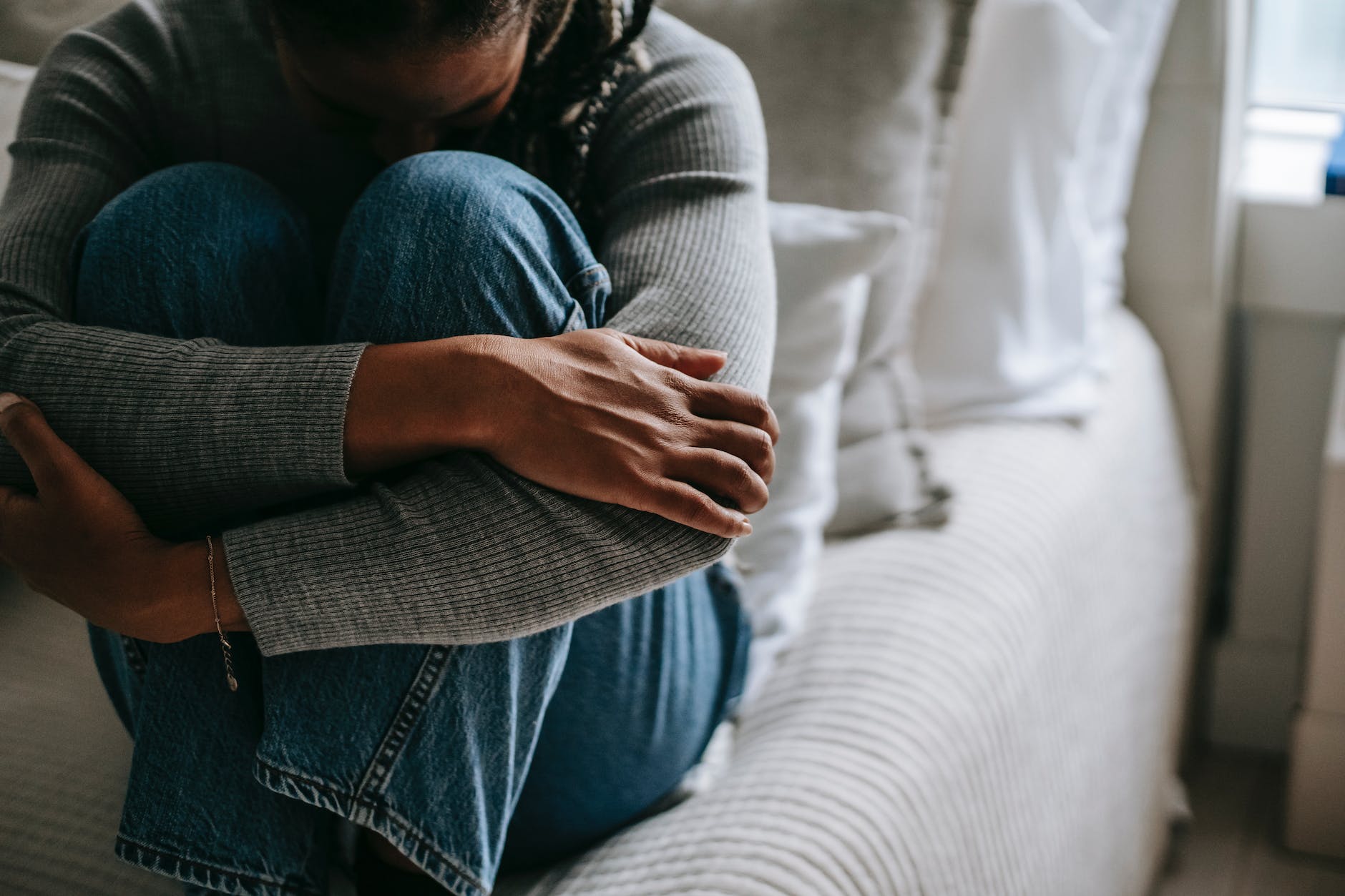
Because breathing difficulties or changes in heart rate, heart disease, high blood pressure, and other cardiovascular diseases may cause you to wake up unexpectedly.
Anxiety can be caused by Parkinson’s disease, Alzheimer’s disease, and mental diseases.
Changes in Lifestyle: Our everyday routines change as we get older. These alterations can have an impact on our Sleep. As you age we tend to exercise less. Try to increase your activity and outside time while limiting napping to increase both the length and quality of your Sleep:
Elderly folks exercise less. Have an appointment with your doctor and obtain a good quantity of exercise every day.
Sunshine stimulates the production of melatonin, which regulates your sleep cycle. Each day, try to receive at least two hours of exposure to bright light. If getting outside is difficult, consider using a full-spectrum light indoors.
While napping might be beneficial, napping for more than 20 minutes per day may interfere with your Sleep.
Caffeine, alcohol, and nicotine are all stimulants. These three factors will disrupt your Sleep. If you’re having problems, cut back and avoid using any of these products within three hours of going to bed.
We are more likely to be taking one or more medications as we age and some drugs frequently disrupt sleep. Your doctor may be able to change your medicine to one that does not cause you to lose sleep or adjust the time of day you take that medication. Certain high blood pressure drugs, antidepressants, steroids, some decongestants, and bronchodilators are all known to interfere with Sleep.
What You Can Do to Improve Sleep
The good news is that by diagnosing the underlying cause and making changes, you can generally significantly improve your Sleep. If your lack of Sleep is caused by an illness or medicine, speak with your doctor about modifying the drug or the time of day you take it. Follow the sleep suggestions listed above, and be sure to get some exercise and sunlight every day.
If your Sleep does not improve, you may be suffering from a sleep problem. Sleep apnea and insomnia are medical problems that make it difficult to fall or remain asleep. These conditions can be treated with the assistance of a healthcare provider.
Make modifications to your sleeping and lifestyle patterns. If that doesn’t work, consult with your doctor. Whatever you do, don’t accept “trouble sleeping” as a normal part of aging.
Try These 5 Items to Help You Get a Good Night’s Sleep
We have all experienced difficulty sleeping. You switch off the lights, settle into a comfortable posture, close your eyes, and wait. And then wait. And then wait. Then it’s 2:00 a.m., and you’re more awake than you were before sleeping down. The panic creeps in, and you know tomorrow will be difficult.
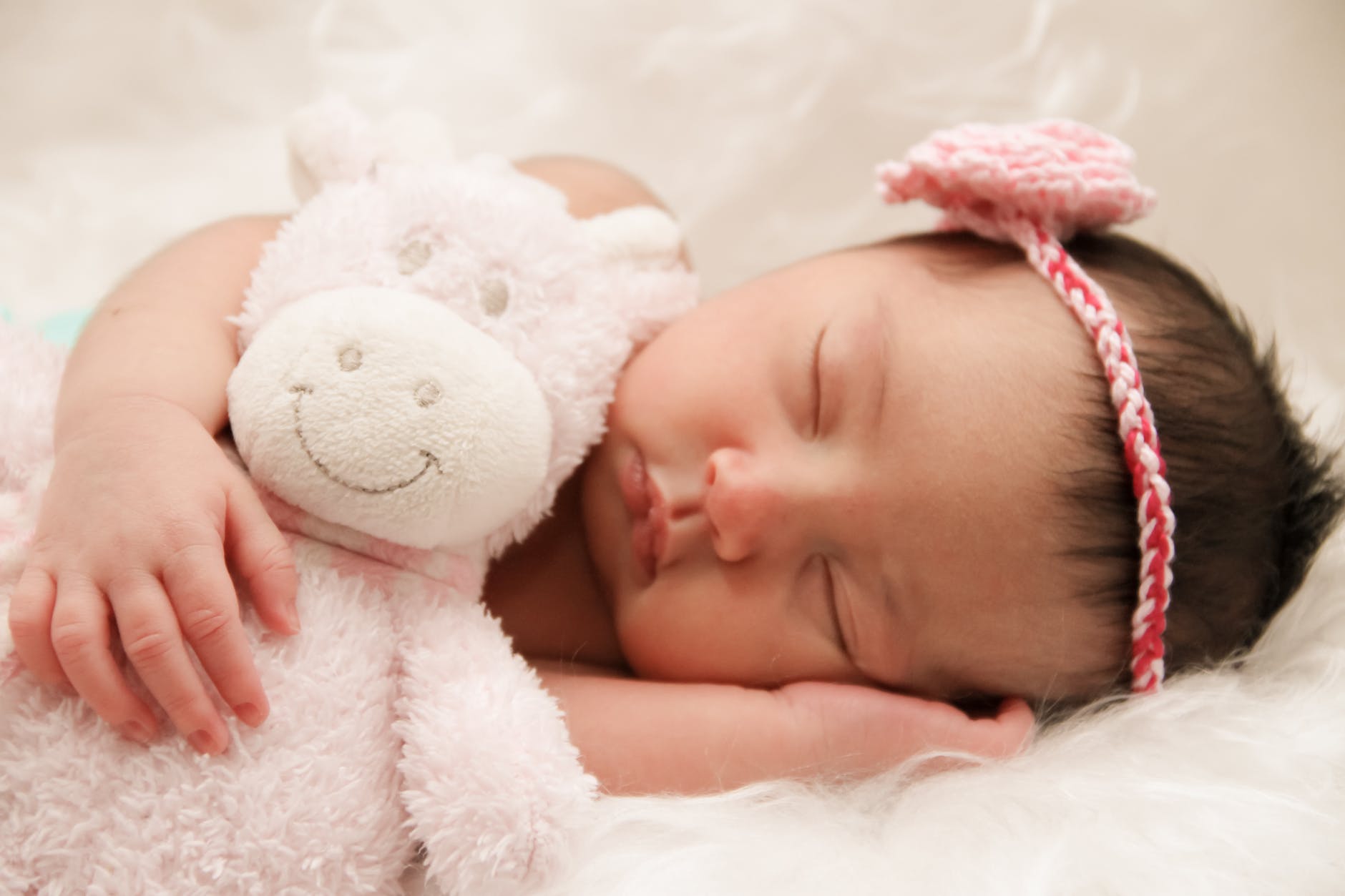
From early high school until my late twenties, this was my evening routine. Even in the evenings, when I was finally able to sleep, I’d wake up four or five times without explanation. When I told my friends and relatives about it, they viciously nodded in agreement, stating they had gone through something similar. But no one had a viable solution. The unfortunate reality is that insomnia is extremely common, with one out of every three people reporting feeling it in 2019.
While many people experience the agony of restless nights, it is critical to know when to seek medical attention.
Talk to your physician or a sleep specialist if you experience several nights a week (3+) or feel that you consistently have difficulties with the quality or quantity of your Sleep numerous nights a week. There are numerous successful therapies available, including Cognitive Behavior Therapy for Insomnia.
See a professional because sleeplessness is frequently associated with mental illnesses such as stress, anxiety, depression, and PTSD. As someone suffering from generalized anxiety disorder (GAD).
Much of it boils down to developing a rigid schedule that includes turning off my phone by 9:00 p.m. and meditating in bed. But you might wish to try some of these sleep aids.
This post contains referral links for products we love. Staying Fit With Aeran earns a small commission on these links at no cost to you, and the links will always be marked with an asterisk *.
Our Sleep Mask is light-blocking and will not damage your lashes.
Slip Silk Contour Sleep Mask, * $55, available at Amazon.com.
Light has always troubled me when I try to sleep, so I decided to experiment with sleep masks. I went through several pairs that were comfortable but crinkled and flattened my eyelashes.
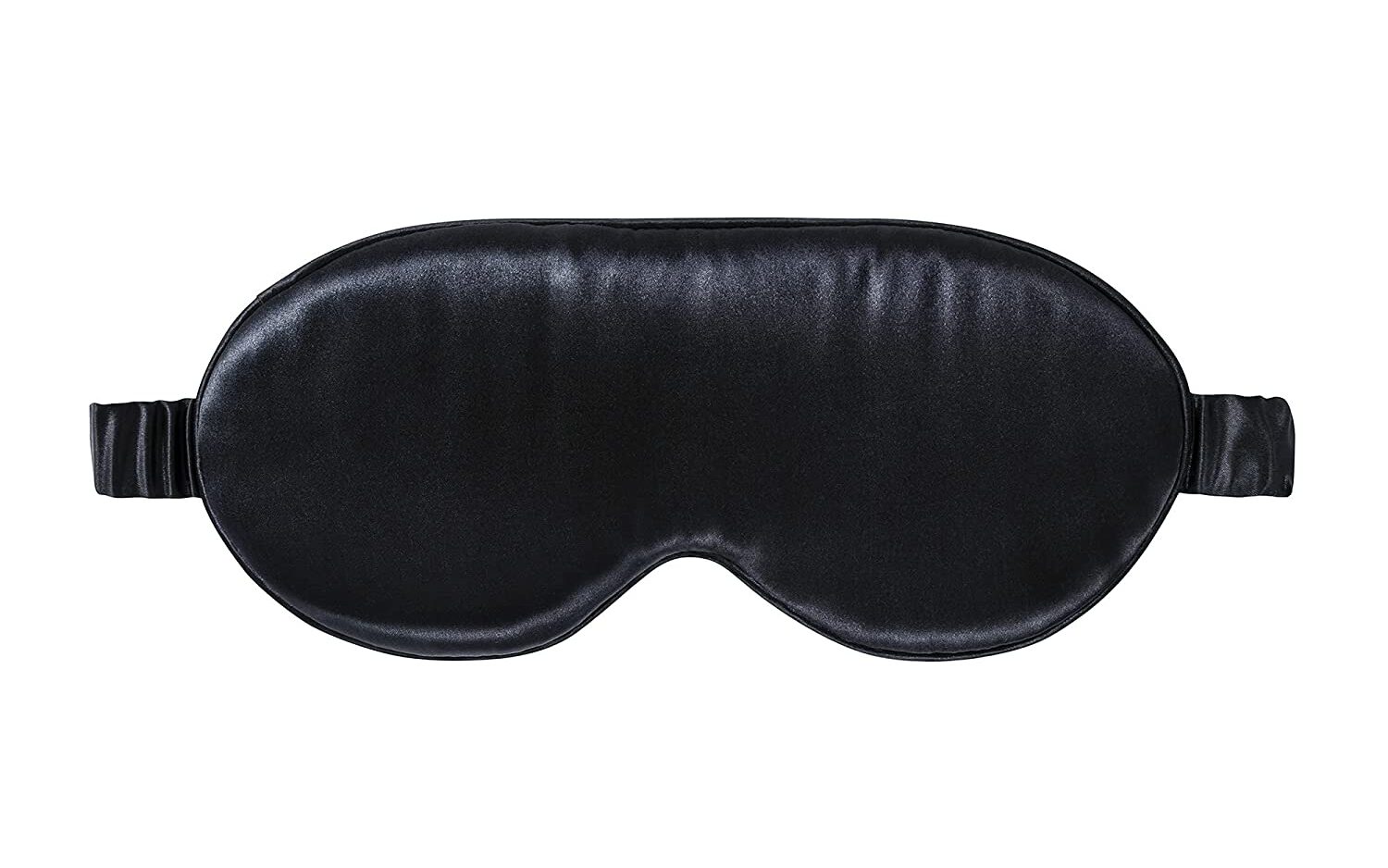
This sleep mask provides a comfy raised ring of padding around your eyes, allowing your lashes to lay undisturbed. The silk fabric is gentle on the skin and will not create pimples. I’ve also discovered that it’s simple to wash—I just toss it in with my other clothing on a cold load or hand wash it and hang it to dry. It’s ideal for someone with longer lashes who needs complete darkness to fall asleep.
Cooling Bamboo Sheets with a Weighted and Plush Feel
Bamboo Sheets by Bedsure,* $60, amazon.com
Weighted blankets or sheets are an excellent technique to alleviate stress since the weight relaxes your autonomic nervous system (which is part of your nervous system that controls things like your heart rate, blood pressure, breathing, and digestion). Bamboo Sheets from Bedsure Felt heavier than others and silky soft to the touch, providing a soothing effect.
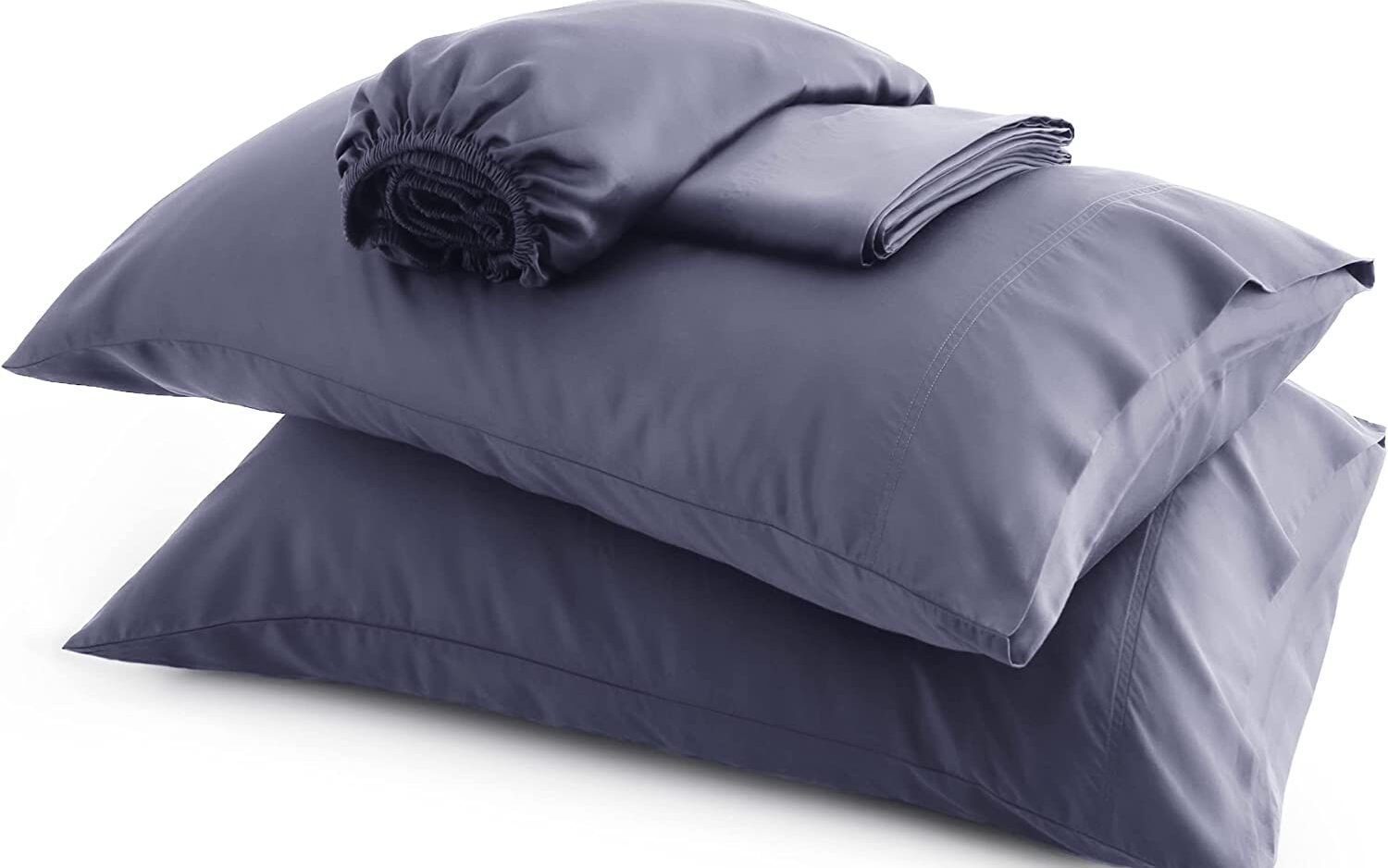
They also provide a significant cooling feeling, which aids in Sleep because increased body temperatures have been linked to nocturnal waking. The temperature of your body gently dips while you sleep and increases again in the morning. This occurs in time with your circadian clock and is necessary for falling and staying asleep. If your body temperature is too high, it can interfere with deep Sleep and cause you to wake up more frequently throughout the night, impacting both the quality and quantity of your Sleep.
I like these Bedsure sheets because they regulate and moderate my body temperature, making it easy to fall and stay asleep—sweat-free. If you wake up from night sweats or have trouble sleeping because your body is overheating, cooling sheets like these are for you.
A Cooling Memory Foam Mattress to support your Lumbar
Puffy Mattress, $700 (was $1450) * with discount code; puffy.com
This cooling Mattress significantly improved my ability to go to sleep and stay asleep. The Puffy Mattress is a foam mattress with numerous layers, two of which create a cooling sensation to keep you cool while sleeping.
I normally like softer, plusher mattresses, so I was shocked to discover that I liked the firmness of the Puffy. Unlike other firm mattresses, this one does not make me feel like I’m sleeping on a block of concrete. Also, I have severe allergies, and this Mattress is hypoallergenic, so I don’t wake up in the middle of the night sneezing. It also comes in a compressed box for easy delivery and comes with a 101-night trial, so you’re not locked in if your insomnia doesn’t improve. This Mattress works well on both a fixed base and an adjustable bed, making it ideal for individuals who prefer greater customization.
Noise-reducing earplugs that allow me to sleep on my side
Amazon.com has Tiliwame Reusable Earplugs * for $17.
If you have trouble sleeping, even the smallest disturbance in the middle of the night will wake me up, yet earplugs never seemed to be an option for me. Earplugs can feel like a painful jab to your eardrums for side sleepers like myself, making it impossible to sleep.
The Tiliwame Ear Plugs are my favorite since their base is flush with my inner ear. These are not totally noise-canceling, but they do reduce noise. Yet, this is ideal for parents who are concerned about not hearing their alarm in the morning or who have children who may want assistance in the middle of the night. These earplugs are also beneficial to the environment because they are reusable.
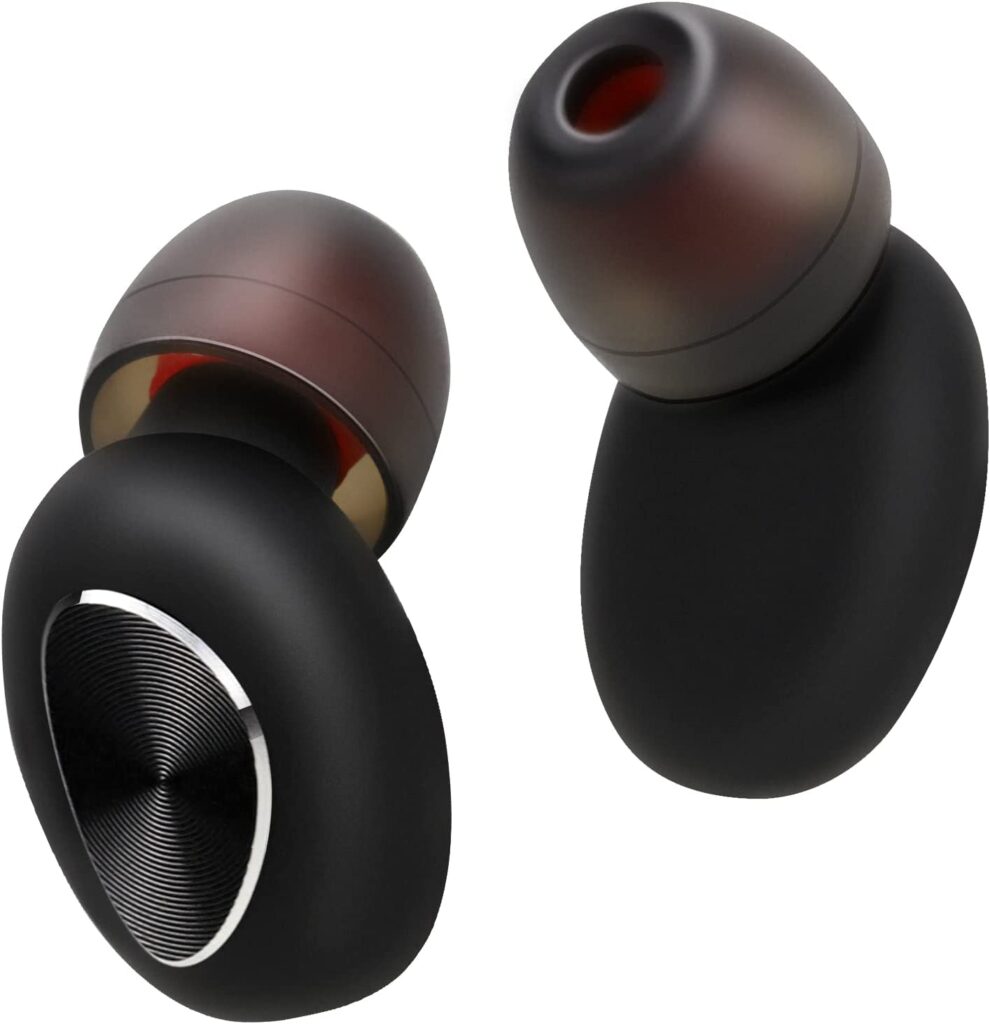
It’s worth noting that foam headphones are more noise-canceling than Tiliwame Earplugs. However, foam can be harmful to persons with allergies and is prone to bacteria growth, so it should be discarded after a few applications. If you’re concerned about the environment, reusable plugs are the way to go.
Melatonin That Works and Tasty
Natrol Melatonin * is available for $10 through Amazon.com.
Melatonin has always been effective for me. While it is not a cure for insomnia, it is a natural therapy that can occasionally help you sleep. Some believe that melatonin is a natural remedy for insomnia, but there isn’t much evidence to back this up, and they also take far too much. Some experts believe it can help a few people with insomnia, but it isn’t the panacea that most people believe it is. While we don’t recommend buying melatonin, believing it’s the be-all and end-all of your sleep problems, it can be an occasional boost into rest for some.
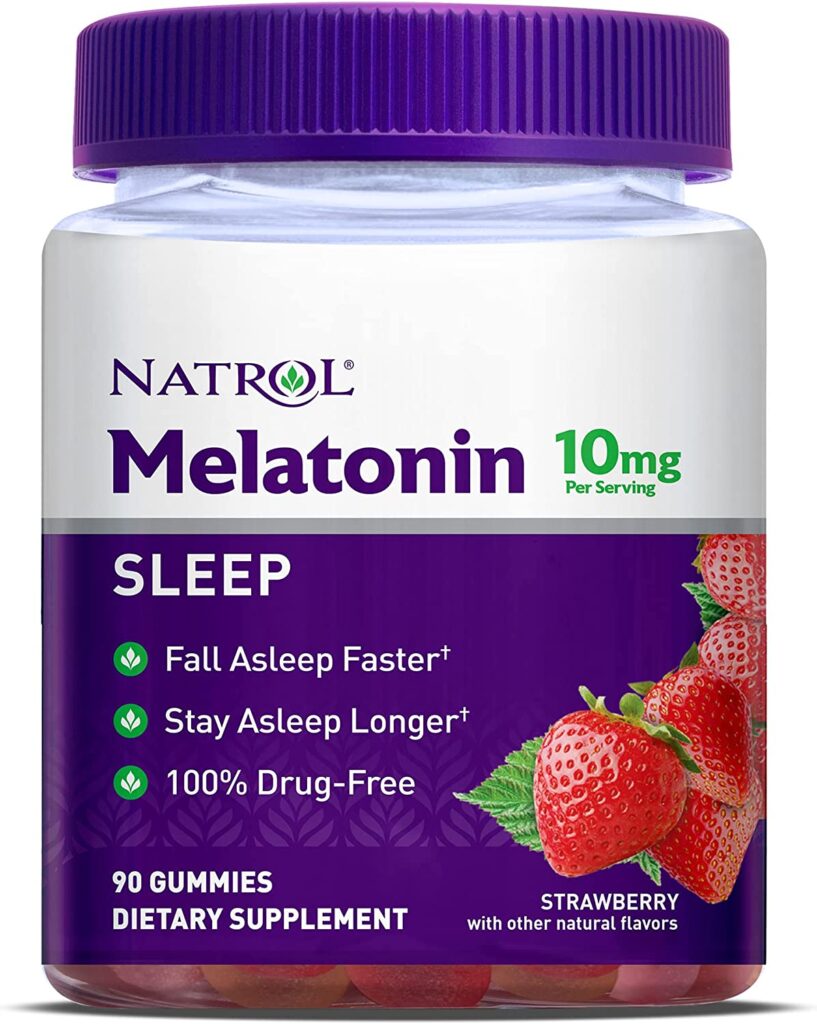
I’ve tried a lot of melatonin products that work for me, but I prefer Natrol Melatonin since I believe chewable choices strike me with tiredness faster and harder. They also taste wonderful. Melatonin is not a sleeping aid; it will not keep you awake all night. It does, however, take the edge off by communicating to your body that it is time to sleep.
To Conclude
Sleep is essential for overall health and well-being throughout your life. Your body works during Sleep to support good brain function and physical wellness.
Inadequate Sleep can increase your risk of chronic health problems over time, especially as you age.
Strive to exercise and eat a well-balanced diet. Perhaps you could try some of the above-mentioned goods.
